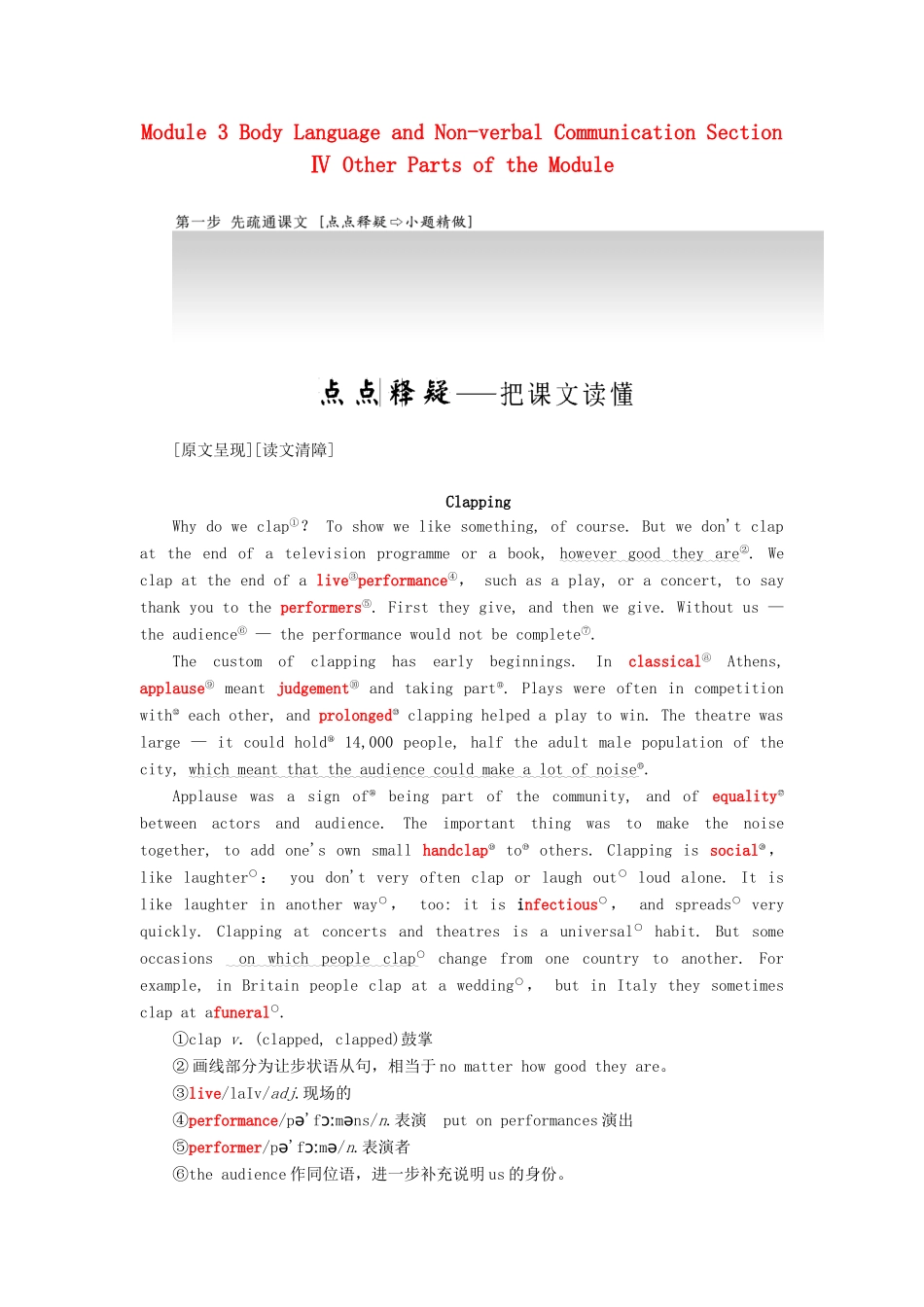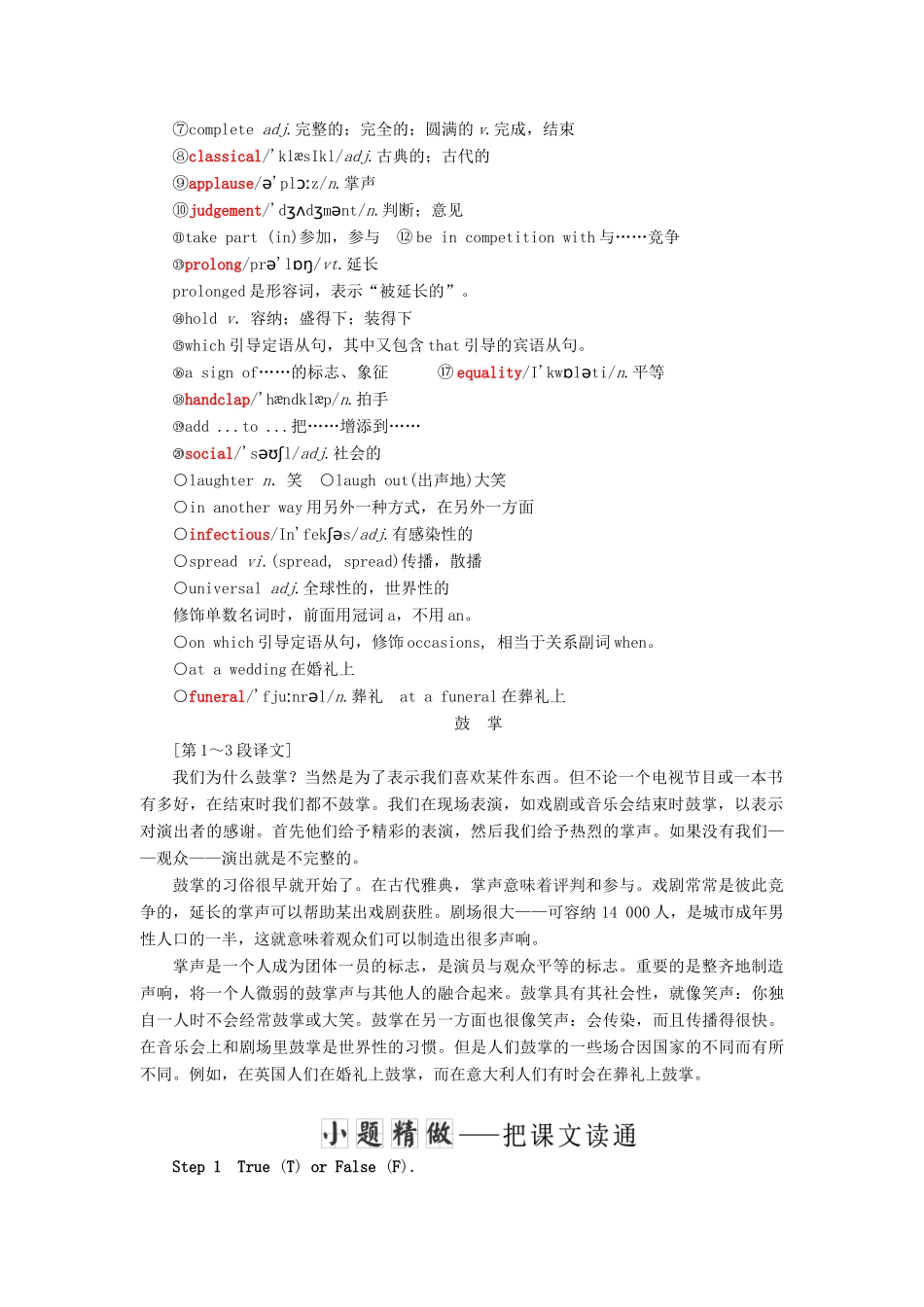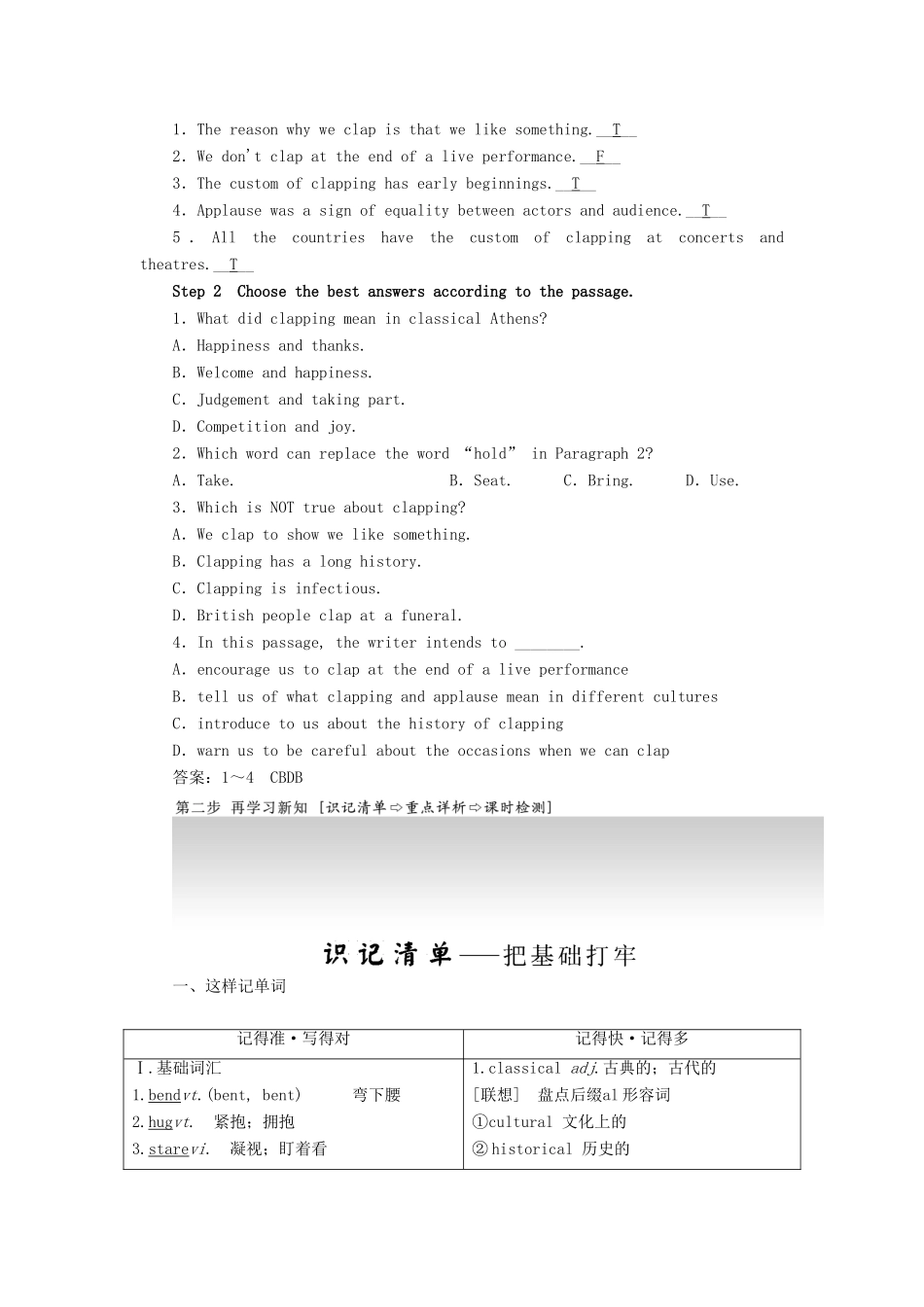Module 3 Body Language and Non-verbal Communication Section Ⅳ Other Parts of the Module [原文呈现][读文清障] ClappingWhy do we clap①? To show we like something, of course. But we don't clap at the end of a television programme or a book, however good they are②. We clap at the end of a live③performance④, such as a play, or a concert, to say thank you to the performers⑤. First they give, and then we give. Without us — the audience⑥ — the performance would not be complete⑦.The custom of clapping has early beginnings. In classical⑧ Athens, applause⑨ meant judgement⑩ and taking part⑪. Plays were often in competition with⑫ each other, and prolonged⑬ clapping helped a play to win. The theatre was large — it could hold⑭ 14,000 people, half the adult male population of the city, which meant that the audience could make a lot of noise⑮.Applause was a sign of⑯ being part of the community, and of equality⑰ between actors and audience. The important thing was to make the noise together, to add one's own small handclap⑱ to⑲ others. Clapping is social⑳, like laughter○ : you don't very often clap or laugh out○ loud alone. It is like laughter in another way○, too: it is infectious○, and spreads○ very quickly. Clapping at concerts and theatres is a universal○ habit. But some occasions on which people clap○ change from one country to another. For example, in Britain people clap at a wedding○, but in Italy they sometimes clap at afuneral○.①clap v.(clapped, clapped)鼓掌② 画线部分为让步状语从句,相当于 no matter how good they are。③live/laIv/adj.现场的④performance/p 'fm ns/əɔː ən.表演 put on performances 演出⑤performer/p 'fm /əɔː ə n.表演者⑥the audience 作同位语,进...


